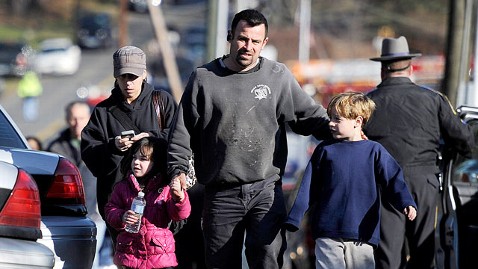Connecticut School Shooting: What to Tell Your Kids

(Image credit: Jessica Hill/AP Photo)
Your child doesn't need to have been at the scene of today's Connecticut school shooting to be traumatized. Hearing about it and seeing images from it can be quite traumatic.
LIVE UPDATES: Newtown, Conn., School Shooting
It's important to remember that children of different ages and levels of development will react differently to the tragedy. Here are some tips to help tailor your conversation to your child's needs.
Children younger than 7
Shield them from this. They don't need to know about it.
Children 7-12
They need to know that they are safe, and they'll look to you for cues.
If you're sobbing uncontrollably, overly angry or unable to express your feelings, it might affect how they process the tragedy. But if you're expressing appropriate emotion - like sadness, concern and empathy - they're going to see that it's OK to be worried about this.
You want them to talk about it. You want to ask, "How do you feel about this?" And then it's important to support their feelings. If your child says, "I'm really scared," the worst thing you can do is say, "There's no need to be scared." Instead, tell them, "We're going to keep you safe, and they got the bad guy."
Children Older Than 12
With teenagers, you really want to engage them. Ask them why they think this happened? And do they think anything could have prevented this? You can have a real conversation out of that. You might also be able to channel them to a community project, some act of charity so that they believe they are taking positive action.